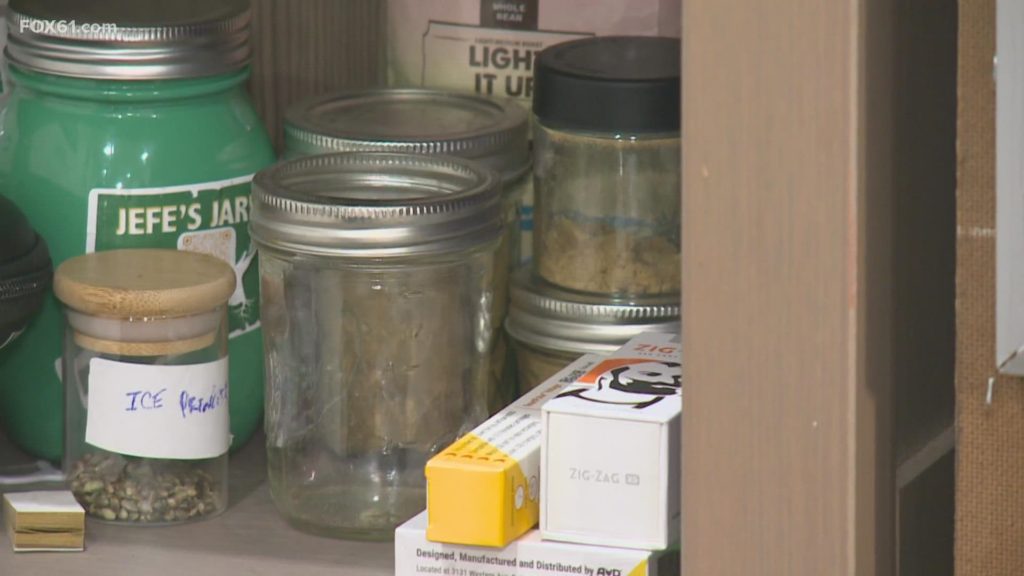NORTH HAVEN, Conn. — Tens of thousands of Connecticut residents will have low-level cannabis convictions automatically erased in the new year, either partially or fully.
Luis Vega is one of them. The North Haven business owner has had eight convictions from 2008 to 2015. Gov. Ned Lamont announced the initiative to clear records earlier this month. It’s part of the Clean Slate Law that was signed by the governor last year which included legalizing adult use. When Vega first heard records would be cleared, he didn’t know how it would impact him.
“I had no real want to really erase them in all honesty. I wear them as a badge of courage. I’ve used that as a fuel to go all in in the cannabis space,” he said.
He’s the owner of the hemp-business WEPA! Farms. Vega is also the founder and CEO of Nautilus Botanicals in Bridgeport which is a new cultivation facility for adult-use marijuana.
44,000 people will be impacted by the 2023 initiative and more are to follow in the year. Adult recreational sales will start on January 10th. The list of businesses that can sell is spread out across the state.
People convicted for possession of under four ounces of a non-narcotic, non-hallucinogenic substance between January 1, 2000 and September 30, 2015 will have their convictions erased without any further action needed.
These violations can be erased if a convicted person files a petition in Superior Court:
Convictions for violations for possession of less than or equal to four ounces of a cannabis-type substance were imposed before January 1, 2000 and between October 1, 2015 and June 30, 2021.
Convictions for violations for possession with intent to use drug paraphernalia for cannabis were imposed before July 1, 2021.
Convictions for violations imposed before July 1st, 2021 for manufacturing, selling, possessing with intent to sell, or giving or administering to another person a cannabis-type substance and the amount involved was under four ounces or six plants grown inside a person’s home for personal use.
People with records cleared will not need to inform employers, housing, or educational institutions of the conviction. Vega says his record impacted his ability to get funding for college.
“Any time I was looking for a step up, that would come up and hinder me, even though it was for something like having some marijuana in my pocket and getting pulled over,” the University of New Haven graduate said. “They hindered education, getting a job, getting housing in certain places, actually being able to get contracts when I started my own company. It’s something that follows you years and years after.”
He served almost a year behind bars followed by state supervision. Vega says he, and the others who have completed sentences for their crimes, did what was required of them. Now, he says the records negatively follow them.
“When I was arrested, I decided cannabis was going to be my all-in thing, this is what I was going to do for the rest of my life,” he said. “I’d rather be a player in the game than a spectator in the stands.”
Vega believes the stigma surrounding marijuana will normalize within the next year. In Connecticut, he thinks it will be a highly-regulated industry. Getting into the industry was a struggle as he went again big companies.
“We should have a place in this industry. This industry shouldn’t just be large corporations. It should be sole operators. It should be the mom and pop’s. It should be Black and Brown men and women, people that were directly affected by the war on drugs,” he said.
Recreational sales will be limited to 1/4 ounce of flower, or its equivalent, per transaction when the market opens to patrons 21 and older. The facilities given the green light to sell recreationally in January are already selling medicinally and will switch to a hybrid business.
“We know that many people are excited to participate in this marketplace, whether as a business or a consumer, and we encourage adults who choose to purchase and consume these products to do so responsibly once sales begin on January 10,” DCP Commissioner Michelle Seagull said.
The state has invested more than $5 million into the Clean State automated technology. The system is expected to be fully operational during the second half of 2023.
H/T: www.fox61.com



